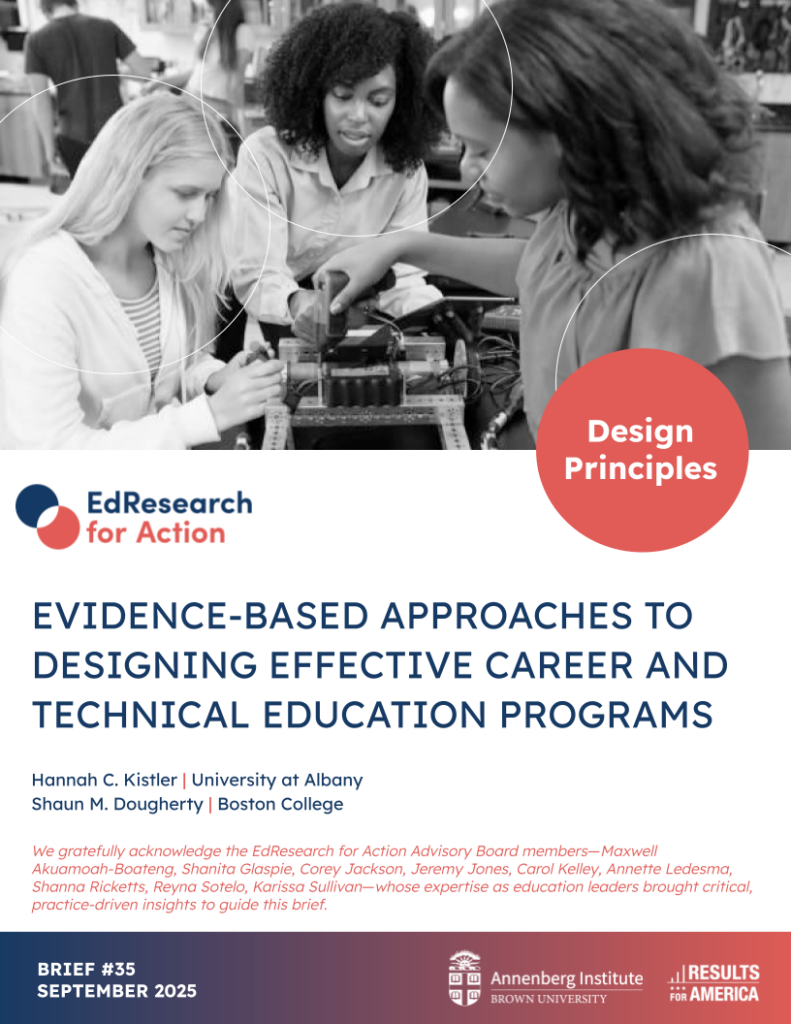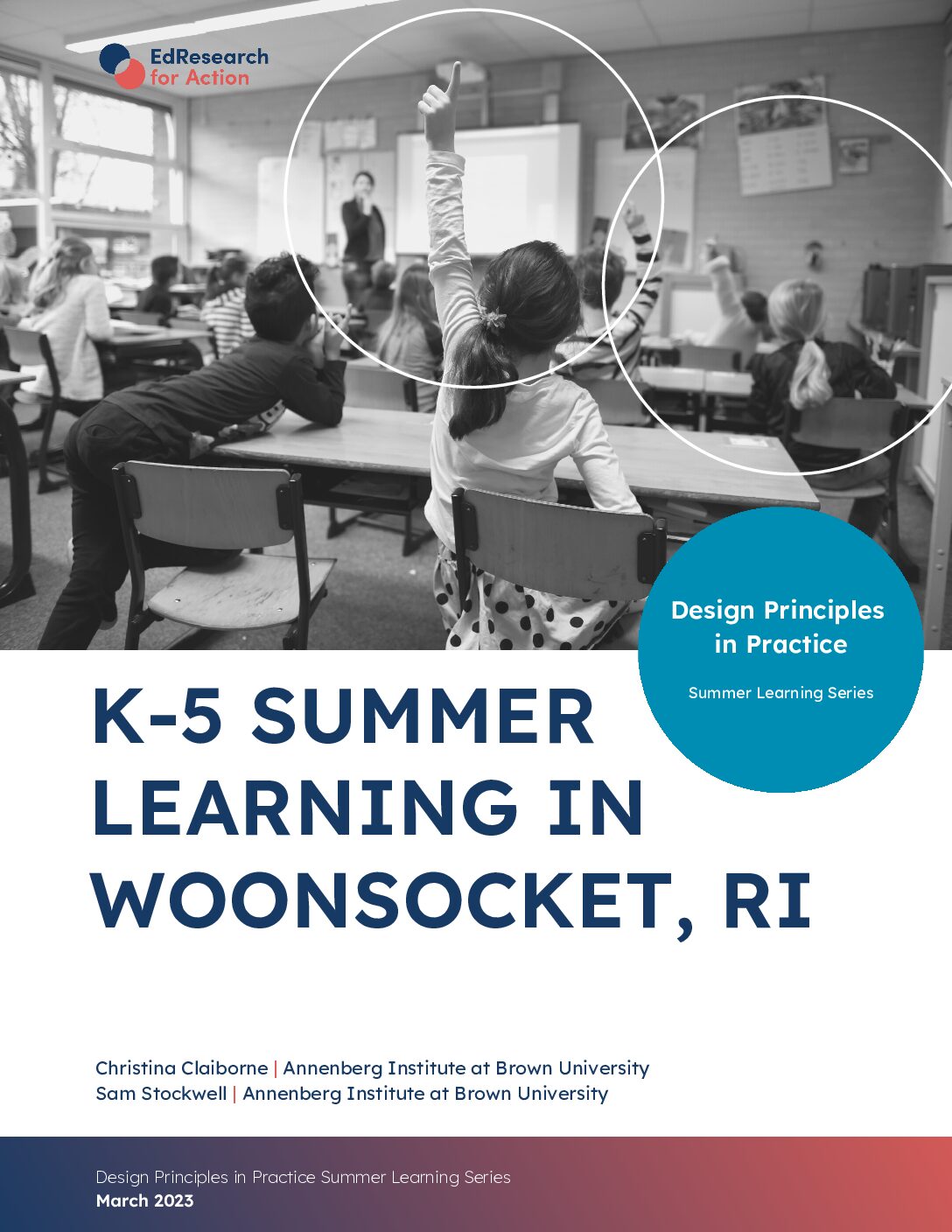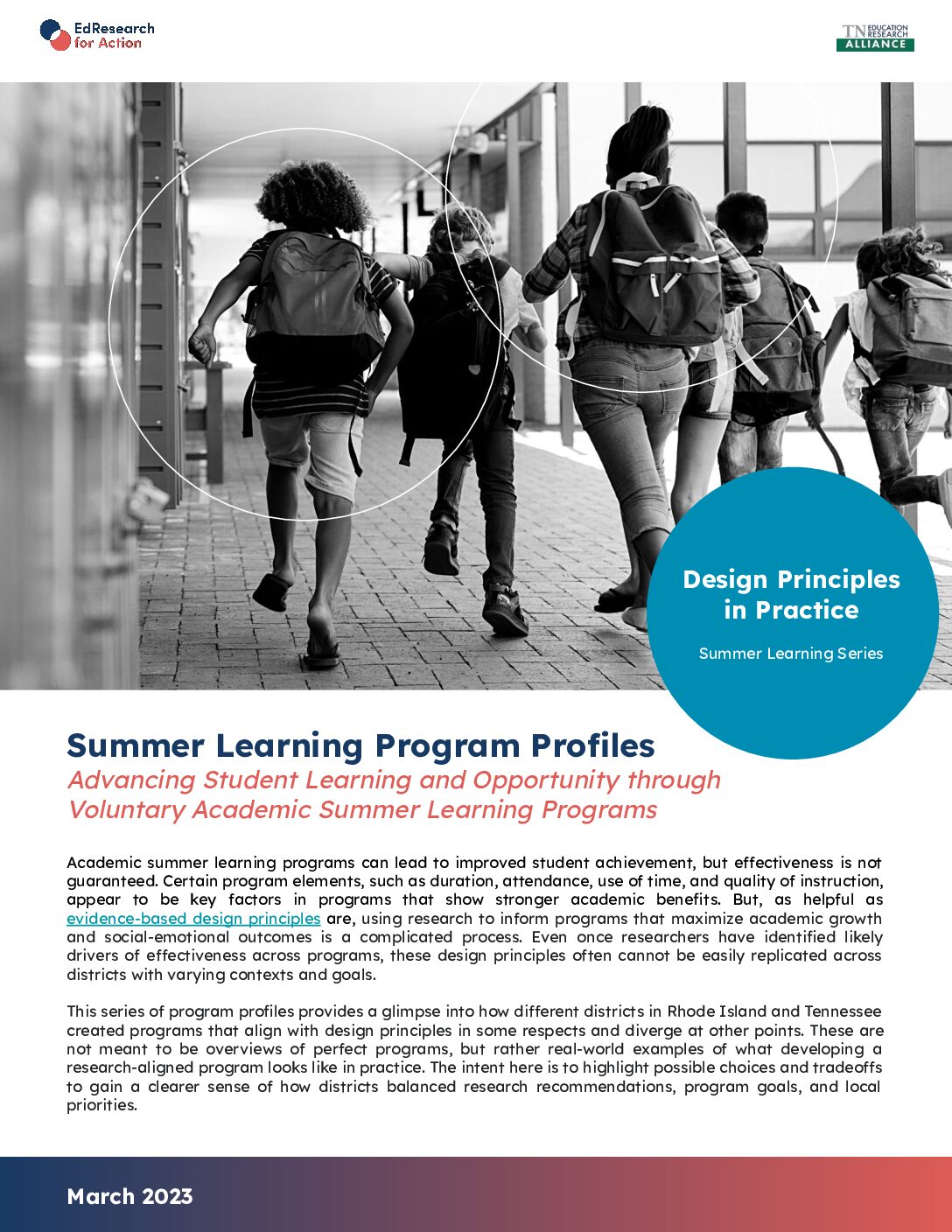Making Evidence MattER
We equip education leaders with timely and relevant research to tackle the most important challenges in the field.
About EdResearch For Action
Practical, research-based insights for education leaders
Researchers struggle to generate real impact and education leaders lack the guidance and support they need to turn research into action. EdResearch for Action – a joint initiative of the Annenberg Institute at Brown University and Results for America – brings together education leaders, policymakers, and researchers to partner on effective, evidence-based strategies for improving schools. We believe that this work is complex, and that the path to better opportunities and outcomes for learners requires a new form of collaboration.
Learn more about usLatest Research Briefs
Promising Practices for School Organization of Mental Health Supports
- Jennifer Greif Green | Boston University
- Joni Williams Splett | University of Florida
Helping Students Make It to College: Evidence-Based Design Principles for Reducing Summer Melt
- Lindsay Page | The Annenberg Institute at Brown University
- Katharine Meyer | The Brookings Institution
- Aizat Nurshatayeva | The Annenberg Institute at Brown University
- Ellen Bryer | The Annenberg Institute at Brown University
Making Learning Real: Design Principles and Evidence for Applied Learning in Schools
- Anna Rosefsky Saavedra | University of Southern California
- Sarah Fine | University of California San Diego
- Marco Chacon | University of California San Diego
Resources
K-5 Summer Learning in Woonsocket, RI
April 8, 2023
District staff face difficult trade-offs as they balance their local needs against the eight design principles described in the research brief. Limitations around district capacity and personnel as well as families’ demands for summer flexibility can directly conflict with calls for greater academic rigor or longer program length. While research should always be used to guide decision-making, it needs to be evaluated in relation to local values. Brighouse et. al argue that the process of using evidence to make effective decisions requires value judgments in evaluating the evidence and in determining which evidence is most important. Further, implementing processes for collecting data is critical to understanding program effectiveness and informing subsequent decisions on program improvement. This case study details how one district – Woonsocket, Rhode Island – chose to navigate these trade-offs and the ways this has played out in program design. In examining Woonsocket’s programmatic choices, three foundational values emerge. They empowered site-based leadership, prioritized program personnel, and designed for student personalization. These values guided decision-making and helped the district build a strong program that aims to balance research recommendations, program goals, and local priorities.
Summer Learning Program Profiles
April 9, 2023
Academic summer learning programs can lead to improved student achievement, but effectiveness is not guaranteed. Certain program elements, such as duration, attendance, use of time, and quality of instruction, appear to be key factors in programs that show stronger academic benefits. But, as helpful as evidence-based design principles are, using research to inform programs that maximize academic growth and social-emotional outcomes is a complicated process. Even once researchers have identified likely drivers of effectiveness across programs, these design principles often cannot be easily replicated across districts with varying contexts and goals. This series of program profiles provides a glimpse into how different districts in Rhode Island and Tennessee created programs that align with design principles in some respects and diverge at other points. These are not meant to be overviews of perfect programs, but rather real-world examples of what developing a research-aligned program looks like in practice. The intent here is to highlight possible choices and tradeoffs to gain a clearer sense of how districts balanced research recommendations, program goals, and local priorities.
They are my go-to. When it comes to effective, research-based practices and policies, they’re really the only game in town.





